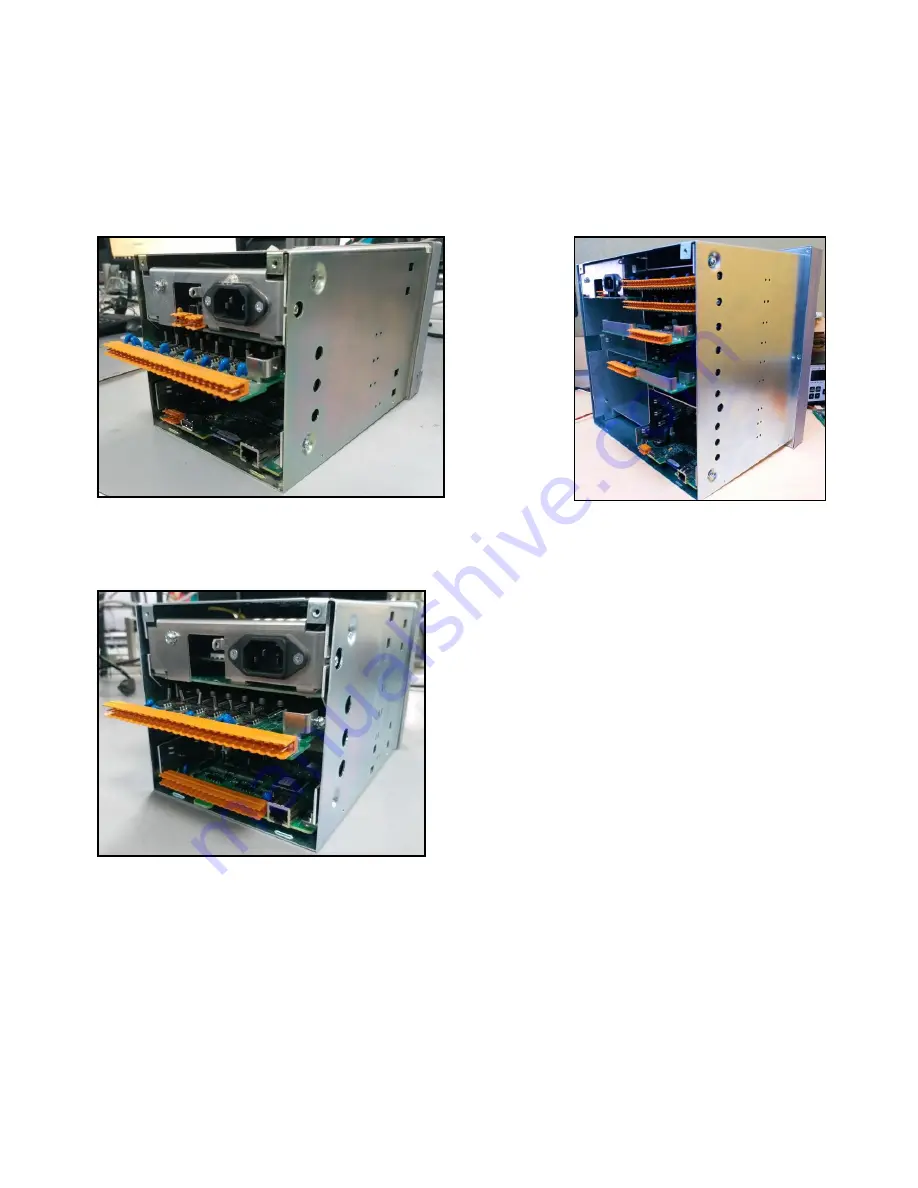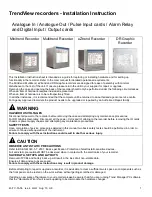
43-TV-33-56 iss.4 GLO Aug 19 UK
7
Removal of Analogue In, Analogue Out and Pulse Input Cards
If the Analogue In, Analogue Out or Pulse Input Cards are being replaced, locate and loosen its M3 x 8 earth screw
from the side of the unit, see Figure 10,11 &12.
Grip the connector on the card to be removed and gently pull to release the card from its connection to the mother
board (expansion boards on the eZtrend) at the front of the unit. Remove the card and retain both the screw and the
shake-proof washer.
Inserting an Analogue In, Analogue Out or Pulse Input Card
NOTE
: To add an Analogue input board to the eZtrend recorder the recorder must already have an Expansion board
fitted. If the Expansion board is fitted continue as described below, if an Expansion Board has to be fitted refer to
Instruction sheet 43-TV-33-
81 “eZtrend Expansion Board”. Minitrend and Multitrend recorders will always have a Mother
Board already fitted.
To replace or add Analogue In, Analogue Out or Pulse Input cards, insert the new card in the correct slot position using
the board guides in the case. Slide the card carefully back into the case, until the fixing bracket on the left side of the
card is in line with the single fixing hole on the side of the case. Ensure the card is pushed fully home to the mother
board (expansion board on eZtrend).
Replace/fit the M3 x 8 earth screws and shake-proof washers, on the side of the case, to secure the card.
Figure 10
Minitrend with Analogue Input
board being removed.
Figure 11
Multitrend Recorder with Pulse
input card and Analogue out card
being removed.
Figure 12
eZtrend with Analogue
Input board being
removed.


































